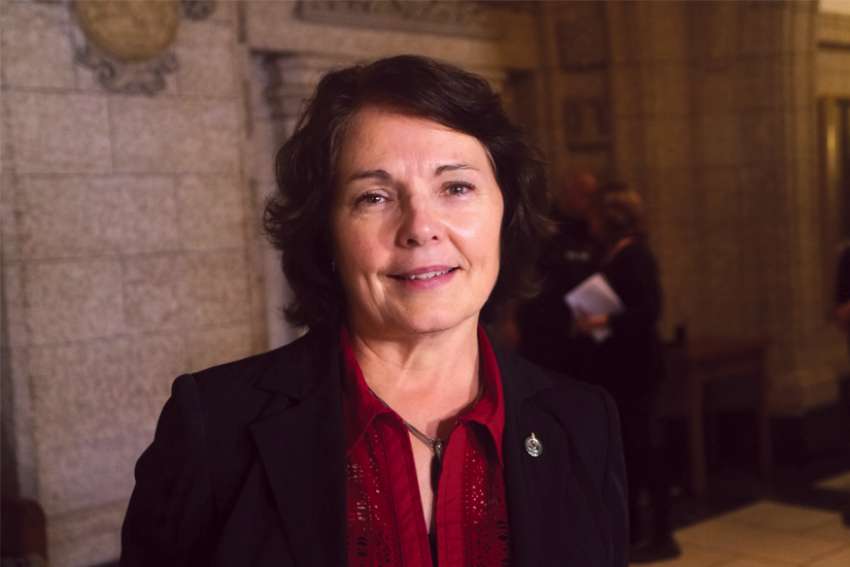“In a country which seeks to foster equality between men and women, the practice of using abortion for sex selection needs to be prohibited,” said MP Cathay Wagantall.
The Sex Selective Abortion Act, introduced Feb. 26 in the House of Commons, proposes a penalty “for medical practitioners who knowingly perform an abortion when the sole reason is the genetic sex of the pre-born child.”
“Eighty-four per cent of Canadians are against sex-selective abortion,” said Wagantall, of Yorkton, Sask. “Legislators have the responsibility to ensure that it is prohibited by law.
“Our silence condones and possibly perpetuates the practice of sex selection,” she said. “Canada must act now to condemn this practice and to make it apparent to all that Canada values women and equality.
“If there is even one female pre-born child who is terminated because of her sex, we need to act.”
A 2016 study published in the Canadian Medical Association Journal found that Canadian women from some Asian countries gave birth to a disproportionately higher number of boys, suggesting women were terminating female pregnancies solely because of the sex of the baby.
Polls have shown that while Canadians generally support a woman’s choice regarding abortion, they oppose late-term abortions and abortions based on the sex of the child.
Wagantall’s bill is being praised by pro-life groups, which condemn Canada’s lack of any laws surrounding abortion.
“Canada is the only democratic country in the world that has no abortion law,” said Tabitha Ewert, legal counsel for We Need a Law. “We know that this complete lack of restrictions means abortion is used for sex selection, which is inherently discrimination.
“As a society that values equality of the sexes, we have an opportunity here to take a stand against the inequality manifest in deciding a child’s wantedness based on their sex.”
This is not the first time Wagantall has attempted to change abortion law. She introduced a private member’s bill in 2016 called the “Protection of Pregnant Women and Their Preborn Children Act” that was defeated by a vote of 209-76.
Although private member’s bills rarely succeed, Wagantall hopes putting the issue up for debate in the House will ignite a larger discussion about abortion laws.
“It is true that the majority of Canadians agree to having access to abortion,” Wagantall said, but the vast majority of Canadians oppose sex selection as a reason for an abortion. “We have a responsibility to widely condemn this practice that is going on in Canada,” she said.
“If we truly want equality, then we must stand in defence of equality.”
Wagantall’s bill is not the first time this issue has been raised in the House of Commons. A motion to “condemn discrimination against females occurring through sex-selective pregnancy termination” was put forward in 2012 by the late Conservative MP Mark Warawa.
Numerous other motions and private member’s bills regarding abortion have come forward since the late 1980s, none of which received majority support.
“We admire Ms. Wagantall’s commitment to defending the vulnerable and are thankful for her understanding of the value of life from its earliest stages,” Ewert said.
“We support her efforts to engage her colleagues in the ongoing abortion conversation in Canada, and hope to see hearts and minds changed through the debate around this bill.”


